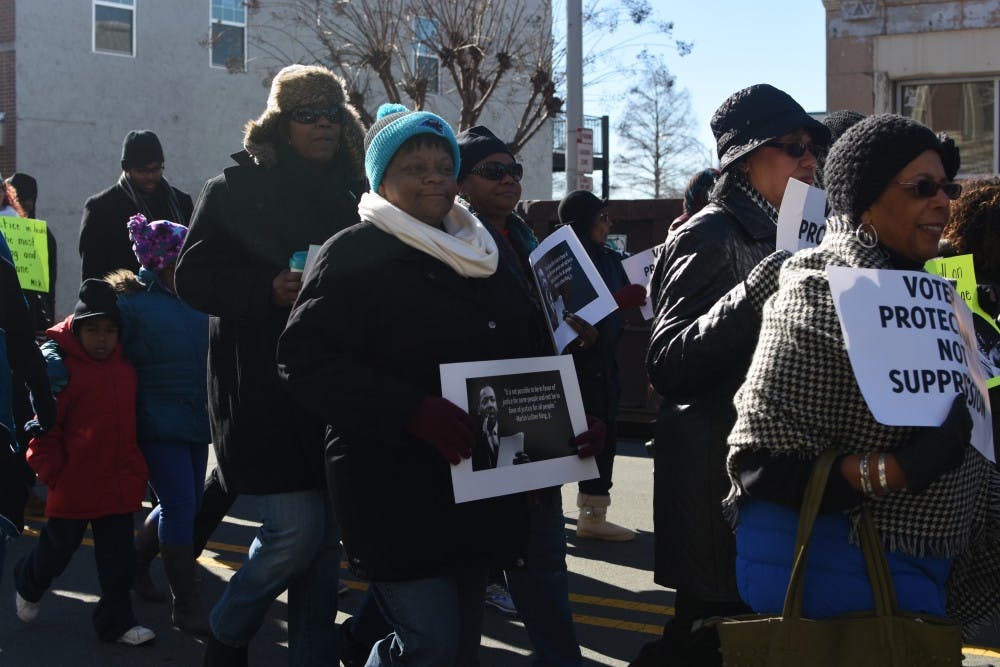Before taking my Winter Term class this year, IDS224: “Non-Violence and Civil Rights," my classmates and I dreaded learning more about the historic Civil Rights Movement. I didn’t believe that I would gain anything new from the class and saw learning the material as an obligation. However, I am happy to say that I was proved wrong: that as I read and engaged, I found there was so much I still had to learn.
Contrary to my prior belief, the Civil Rights Movement was far more than a bus boycott and a few marches. Most importantly, the Civil Rights Movement was about more than just civil rights. At its core, the movement was truly about human rights.
I finally understood this when reading the Class of 2019 common reading book, “Why We Can’t Wait," for my class. I realized that they were fighting for more than desegregation and the right to vote. They were fighting for the right to simply be seen as human, with the same value of all other humans on this earth.
The right to live is the most basic human right we have. Despite this, it was taken away from American people of color in the early 20th century, and it continues to be taken away from people today through crimes of police brutality as seen in Ferguson and Baltimore and crimes of governmental negligence as seen today in Flint, Michigan.
Opal Tometi, founder of the Black Lives Matter movement, spoke in an interview with Time last year about the importance of recognizing the movement as a human rights movement.
“We understand that the black liberation movement in the U.S. — from its inception as an anti-slavery movement, through the Civil Rights Era and up to now — has never been only for civil rights,” Tometi said. “The movement is a struggle for the human rights and dignity of black people in the U.S., which is tied to black people's struggle for human rights across the globe."
If you look at the Civil Rights Movement as a group of individual, small events, then it is easy to believe that progress has been made. I am not doubting this, but when you view the movement as a human rights one, it is clear that black Americans are simply not granted the same human rights as other Americans.
In 1963, Martin Luther King Jr. wrote, “Even today there still exists … the license that our society allows to unjust officials who implement their authority in the name of justice to practice injustice against minorities. Where, in the days of slavery, social license and custom placed the unbridled power of the whip in the hands of overseers and masters, today … armies of officials are clothed in uniform, invested with authority, armed with the instruments of violence and death and conditioned to believe that they can intimidate, maim or kill Negroes with the same recklessness that once motivated the slaveowner. If one doubts this conclusion, let him search the records and find how rarely in any southern state a police officer has been punished for abusing a Negro.”
It is unacceptable that this quote reads as if it were taken out of a newspaper today. This type of reality cannot stand as a cultural norm, or something that we never plan to change.
So, Elon students, I have two challenges for you. First, view this fight as one centered around human rights. Try to make the goal bigger, dare to be bolder. And second, educate yourself further on Dr. King’s fight. Read “Why We Can’t Wait” — go beyond what you learned in the classroom. Over 50 years may have passed, but you will be surprised by how relevant his teachings still are.


